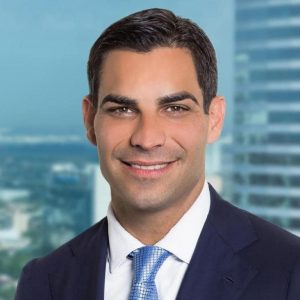|
Getting your Trinity Audio player ready...
|

It is rare for a mayor to be invited into the Oval Office during the first few months of a new administration. Even more so when that mayor is from the opposing political party and from a city known for its independent views. Moreover, the federal government is neither known for its speed nor efficiency. But three weeks ago, a bipartisan group of mayors and I were invited by President Biden to discuss the shape and scope of the new COVID-19 Relief Plan and to work toward a practical recovery from the COVID pandemic. While no plan or package is perfect, we came away from the meeting with three hard truths.
First, we need to vaccinate to recover. Our economy will not fully recover, and our public spaces cannot fully re-open until we reach a sustainable level of public vaccination and personal protection. Businesses need to feel secure and people need to feel safe to go out and to interact. As a practical matter, we need to employ all our tools at all levels to ensure that everyone has access to vaccination—from seniors to the most vulnerable to our entire workforce. I was thrilled to see the State of Florida announce more access to vaccinations for seniors in Little Havana two weeks ago. We need to work with Washington and Tallahassee to help us, and we need practical cooperation with our private sector partners at all levels.
Second, we need to allocate aid fairly. Miami residents deserve more than they are getting. The past COVID relief short-changed cities like Miami with the counties re-directing or holding back aid before it could be practically spent within the federally mandated deadlines. The new relief package gives Miami its fair share directly. It is not perfect, but it provides Miami with the fiscal relief and support we need to cover the costs of COVID-19 and to vaccinate our seniors and all our residents affected by COVID-19. The current package should not be a short-term stimulus but a long-term investment in our infrastructure, our institutions, and our people.
Third, public health and climate adaption are now national security issues. In Miami, we know that it is not a matter of the environment versus the economy; the environment is the economy. Our economic growth will be driven by climate-adaptive infrastructure, continuous life-long learning for better jobs, and a strategic approach to public health and investment.
Miami has survived COVID-19 but now we must thrive. We must re-direct our resources, knowledge, and experience toward a full economic and public recovery. And we need to do it together. Miami is more than a city—it is an idea, a dream, and an opportunity—now is the time to turn it into a reality.





